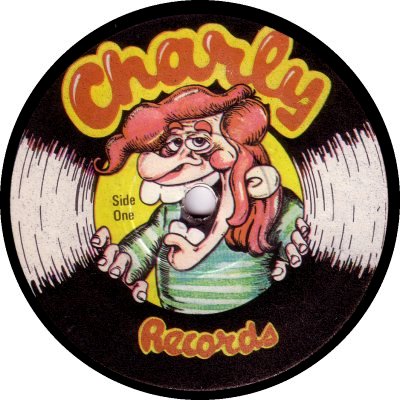
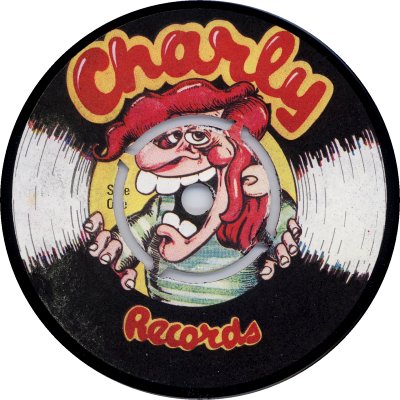
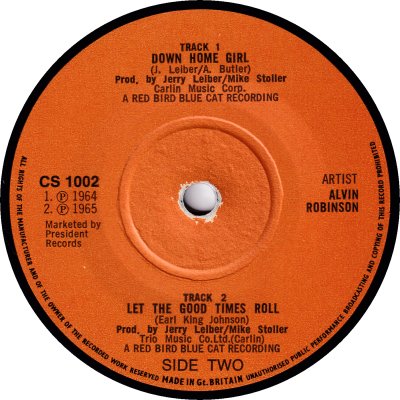
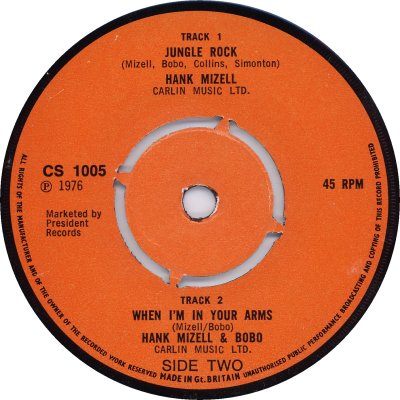
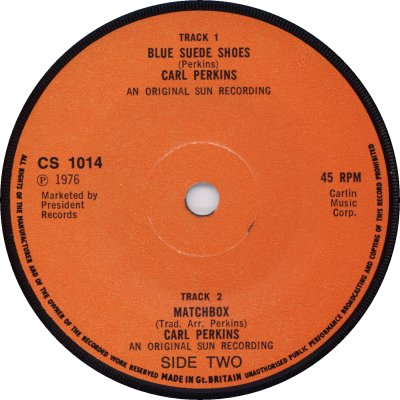
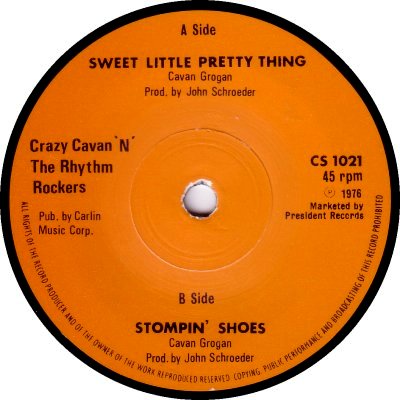
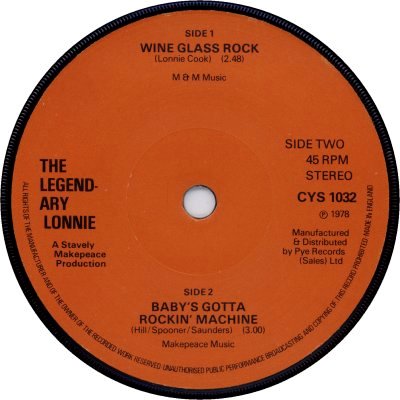
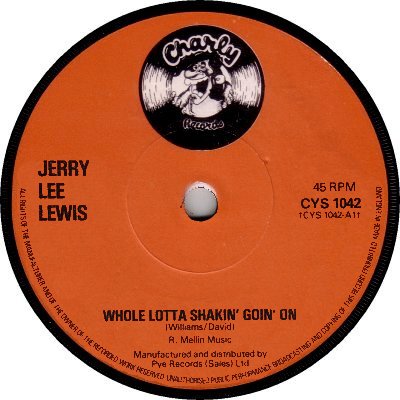
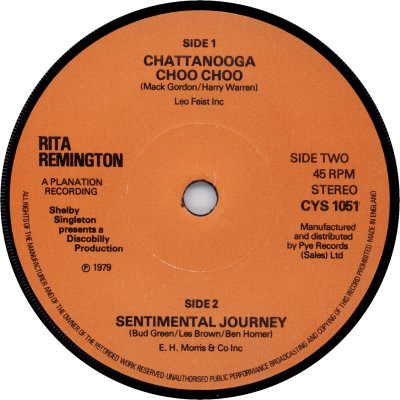
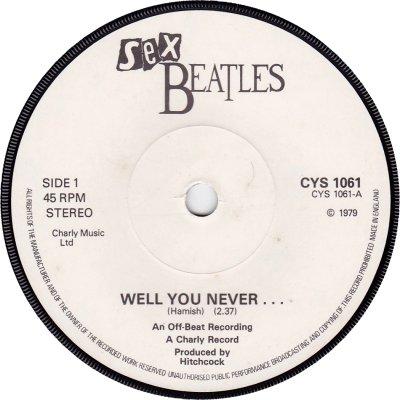
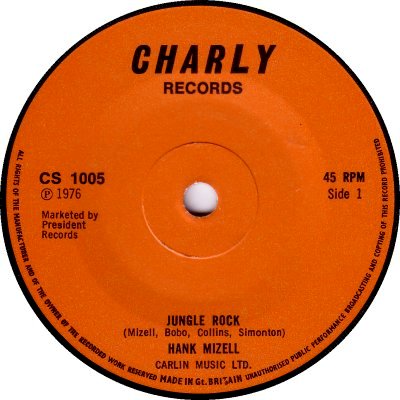
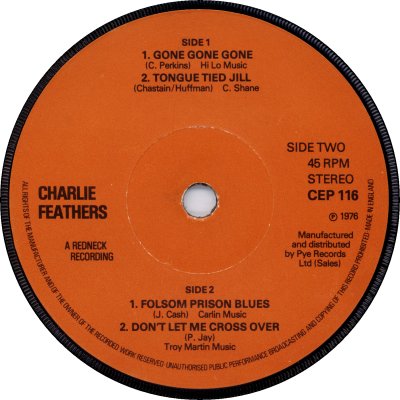
A Franco-British company with Swiss backing, according to 'Music Week' of the 2nd of August 1975. The article described Charly as 'newly formed' and gave the names of its directors as Jean-Luc Young, who headed the French branch, and ex-EMI A&R man Joop Visser, who was in charge in the UK. It added that a manufacturing and distribution agreement had been signed with President Records (q.v.). Initially Charly concentrated on reissuing classic and / or obscure R'n'B / Rock 'n' Roll tracks, mainly from America, but it went on to put out some newly-recorded 'Rock 'n' Roll Revival' records as well, notably from Crazy Cavan & The Rhythm Rockers. It issued its first singles in September 1975. They were sourced from the American companies Plantation and Red Bird, and an advert in 'MW' said that they were available via the British Independent Record Distributors group as well directly as from President - President seems to have generally used the BIRD network to serve dealers who were out of its own reach. Numbering was in a CS-1000 series.
Charly scored an unexpected hit with its fifth release, a obscure 1959 Rock 'n' Roll record by Hank Mizell, 'Jungle Rock' b/w 'When I'm In Your Arms' (CS-1005; 3/76) which reached the No.3 spot and in the process established itself as the Charly single you're most likely to stumble upon in charity shops and car boot sales. The company's relationship with Shelby Singleton, owner of Plantation, soon led to it having access to material from the legendary Sun label, in which Singleton had gained a controlling interest. As a result it was able to reissue a lot of Sun tracks, both well-known and less so, mostly in the form of albums but also on EPs and singles. The agreement with President appears to have been satisfactory for a while, to a certain extent at least: 'MW' of the 24th of June 1976 reported that it had been followed by a two-year distribution-only deal. The article quoted Visser as saying, approvingly, that President was "Independent, like I am." It also said that in addition to its reissues Charly wanted to develop a roster of four or five working artists in the next couple of years, and that there was a possibility that it might 'dabble' in contemporary Jazz - Visser was said to have had ambitions in that direction for a long time. A final event of note in 1976 was the release of the first batch in a series of 'Juke Box Giants' EPs, numbered from CEP-100 to CEP-111. The forthcoming release was covered in 'MW' of the 13th of November, which said that the set had been intended to come out in October but had run into difficulties with pressing. A publicity campaign was scheduled for December, but in the event it may have had to be postponed as the series didn't appear till the 10th of that month.
Charly's two-year distribution deal with President was destined to last for only half that time, despite Visser's remark. 'MW' of the 18th of June 1977 broke the news that a replacement distribution deal had been signed, with Pye. The deal covered Charly's back catalogue, and involved a change of its singles prefix to CYS. Presumably the change was to prevent confusion with singles issued by Contempo (q.v.), which was already under the Pye umbrella; they too were numbered in the CS-1000s. The article added a caution that the move was being disputed by President, in the form of a High Court Order, but 'MW' of the 25th of June was able to report that the High Court verdict had been given in favour of Charly, allowing the transfer of stock to take place. The move from President to Pye had been foreshadowed: Charly had launched its hoped-for contemporary Jazz label, Affinity (q.v.) in April, and had placed it with Pye rather than with President. Three months or so after the move Charly launched a label for Pop and Disco, 'Smash'; then in November it put out the first of a handful of singles on the Sun label (q.v. both). The Sun singles were given catalogue numbers from Charly's main CYS-1000 series.
1978 was notable for Charly's making its first venture into the Punk field, in the shape of singles by The Exiles and The Softies. It also saw the release of a short series of singles split between two artists, 'Double Headed Monsters'. In addition, picture sleeves became the norm, replacing plain white ones - there were never any company sleeves. In June 1979 Charly handled a single by Mainland, 'By Your Side' b/w 'So Long', on the Christy label (q.v.); its catalogue number, CYS-1050, was from Charly's own series rather than the usual Christy one. The autumn of that year found Spartan taking over distribution, with effect from the 1st of October; Smack, Sun and Affinity were included in the deal as well as the Charly label itself. 'MW' of the 6th of that month, noting the change, said that manufacture of Charly's records would continue to be by Pye. In its issue of the 20th of October 1979 'MW' observed that Charly's records were still available from Lugton and, in Ireland, from Solomon & Peres; with that the company left the decade and passed out of the scope of this site. Happily it grew and flourished and is still a major player in the area of reissues today (2021).
One basic label design served Charly throughout the 1970s, though there were a few exceptions. It was one of the few labels to have all the information on one side of the disc and a picture on the other. The picture on the 'A' side (1) wasn't improved by dinking perforations (2); it remained unchanged throughout, but the layout of the information on the 'B' sides altered from time to time. The first four singles had the titles at the top and bottom, the artist's name on the right and the catalogue number on the left (3). From CS-1005 to CS-1020 the artist's name joined the titles at the top and bottom of the labels (4, 5); this arrangement also featured on CSes 1022 and 1026. For CS-1021 and 1023 to 1025 the artist's name moved to the left and the catalogue number to the right; in addition the old 'Track 1' and 'Track 2' were replaced by 'Side 1' and 'Side 2' (6). After Charly turned to Pye for distribution the reference to President disappeared from the labels; it was replaced by a reference to Pye, crediting that company with both manufacture and distribution (7). In August 1978, for the 'Double Headed Monster' series of singles, a different type of label was used, one which disposed of the 'A' side cartoon figure and had the details of each track on the appropriate side; it did however have a small picture of the old 'A' side label at the top (8) - thanks to Nicholas Hough for that scan. The first single with the new design was CYS-1039 and the last CYS-1045; CYS-1044, not being in the series, had the old-style labels. The original design (9) returned in 1979 with CYS-1047, and it served for the rest of the decade. One single, by the Sex Beatles, was given its own particular design (10) - that scan appears by courtesy of Paul Winsall.
As was stated above, catalogue numbers were initially in a CS-1000 series, which became CYS-1000 at the time of the move to Pye. Some popular back-catalogue singles and a couple of current ones were re-pressed with their old numbers but the new prefix; thus, for example, the Shangri-Las' 'Leader Of The Pack' b/w 'Give Him A Great Big Kiss' can be found as CS-1009 and CYS-1009. Charly adopted a two-tone blue label in a completely different design in 1980, and because of re-pressings some records with low CYS-1000 catalogue numbers can be found with those labels: Carl Perkins's 'Blue Suede Shoes' b/w 'Matchbox' exists as CS-1014 and CYS-1014 with the old-style labels and as CYS-1014 with the blue ones. Some records in the first batch of CEP-100 EPs which had originally been pressed by President were re-pressed by Pye, with the credit on the label changed accordingly (12); CEP-103 exists in both forms and also in a blue-labelled version. Finally, some copies of 'Jungle Rock' can be found with labels in a plain design (11); it seems probable that these came about because of a shortage of the usual labels.
With regard to manufacture, President's initial agreement covered that as well as distribution; presumably the work was done by their British Homophone arm. When the deal was replaced by a distribution-only one, in June 1976, Charly seem to have turned to several different companies for pressings. Linguaphone appear to have contributed a significant number of singles during that era; I'm pretty confident that their products can be identified by the combination of a deep bevel and a narrow raised platform around the spindle hole (3, 9). In addition Pye look to have chipped in occasionally. After the move to Pye the evidence of the text on the labels suggests that that company did Charly's pressing as well as distribution, even if 'MW' referred to the deal only as a distribution one. The discography below only covers the 1970s.
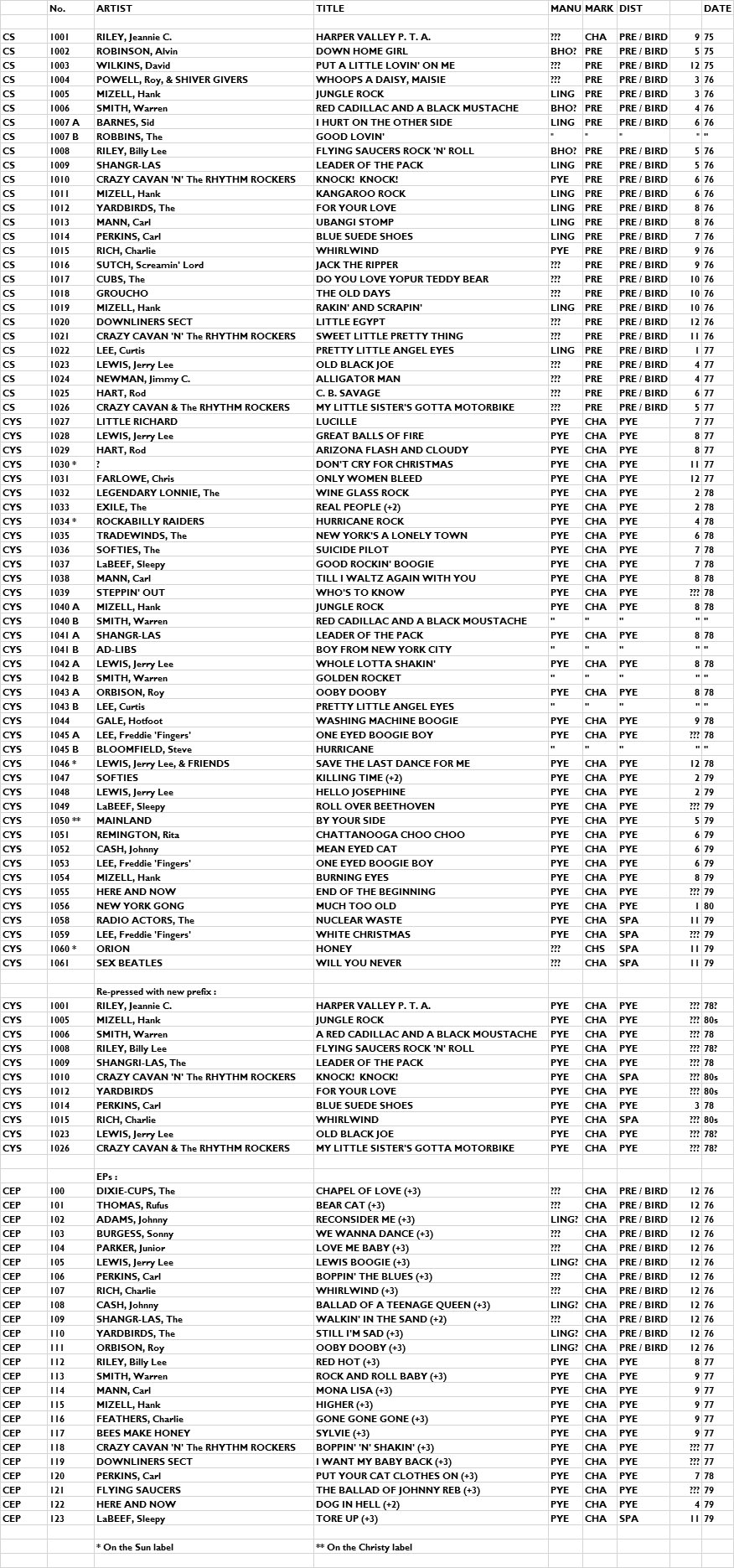


Copyright 2006 Robert Lyons.

